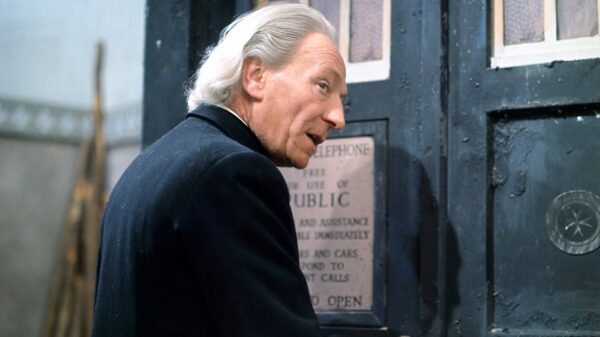BBC History celebrates 85 years of entertainment television by releasing some of its archive
As part of its 100 Voices That Made The BBC archive project, BBC History has today launched its Entertaining the Nation Collection, offering a rare insight into broadcast entertainment across the years through newly released interviews from the BBC Oral History Collection, plus an array of rarely seen photographs.
The press release goes through just some of what’s on offer, which includes insights into popular sketches from Morecambe and Wise, the controversial creation of Doctor Who and its ‘bug-eyed monsters’, innovative formats that pioneered in Sportsview, the humble beginnings of the now world-famous natural history programming, and of course the all-important battle for Saturday Night family viewing. The collection also includes an unseen image of the first ever broadcast knife-throwing act in a variety sequence of Here’s Looking At You in 1936.
The Doctor Who coverage includes a video interview with Sydney Newman who talks about Verity Lambert’s importance for the show’s creation.
Other key pieces of television history include Cathy Come Home:
On November 16 1966, as part of The Wednesday Play series, Cathy Come Home was broadcast on BBC One. Written by Jeremy Sandford and directed by Ken Loach, the drama tells of a young northern girl, Cathy (played by Carol White) who moves to London and marries a local van driver, Reg (played by Ray Brooks). After having children, and after an accident at work which leaves Reg unable to work, their lives descend into poverty and homelessness. The traumatic scene at the end of the drama where Cathy’s children are forcibly taken from her and put into care is one of the reasons why the drama provoked so much debate.
This was another Sydney Newman project and he talks about why the drama resonated so strongly.
Saturday Night includes Morecambe and Wise, Parkinson and The Generation Game, there’s key sporting moments, the Queens Coronation and much, much more. It’s a fascinating insight into the broadcaster’s history.

